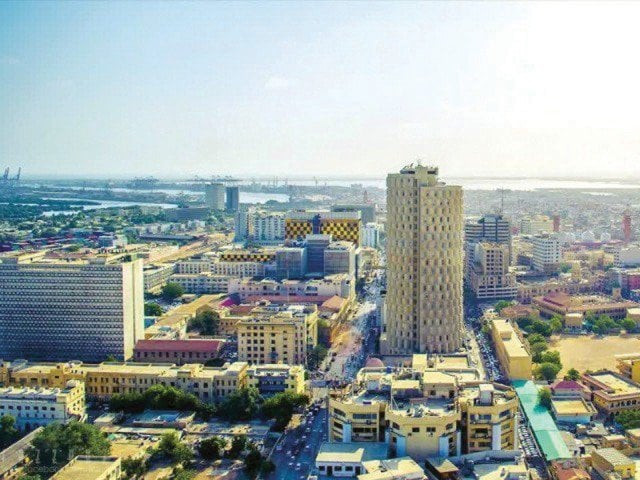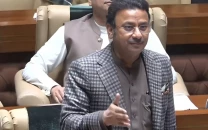'Masterplan is the dinosaur of the past'
Beaconhouse School System hosts two-day event, 'A World of Tomorrow'

PHOTO: FILE
He was speaking at a session titled 'Living Places: Rethinking Urban Design' at a two-day event, 'A World of Tomorrow', organised by Beacon House School System on Saturday. The session was moderated by an architect, Tariq Alexander Qaiser, who is also a photographer and a painter.
The cities, according to Anwar, are now being conceptualised, designed and managed in a very different way from the past. There are concepts of smart cities, sustainable cities and resilient cities, he said.
For the masterplan, he said that the planning has changed a lot, "It has become decentralised now and is moving towards individual and household level." He said that once you install solar panels at your house, you can start producing electricity. The surplus electricity produced, he added, can be fed into the grid to earn money, which turns a consumer into a producer.
Karachi needs $10b to build infrastructure
Not many people know that in recent global liveability index Karachi was ranked 137 out of 140. "That is the extent of the crisis we are facing," he said and added that it's all because of the failure of the governance system.
The severity of the situation is such that 2007 was the first year when the number of people living in Karachi exceeded than those living in rural areas. According to a conservative estimate, he feared that by 2025, 75% of the population will be living in cities which are, he believes, becoming the centre of the battle ground in terms of tackling the impact of climate change. "Most of the activities causing global warming are based in cities," he said.
In order to achieve a 'smart city' concept, he referred to three 'Es'; economy, environment and equity, which are keys to sustainability. By 'economy', he meant that the cities have to be economically prosperous and by 'environment' he meant that whatever development is taking place must not be at the cost of the environment. For 'equity', he said, it means that whatever development is taking place should be equitably shared within the society.
"It is important for us to understand that cities are being structured and designed in a very different way," said Anwar and explained that no longer are we designing the cities with planner, architects and designers writing one sector on housing and the other on solid waste. "Everything is connected. It's all about connecting the dots."
Unfortunately for a city like Karachi, he said, this understanding is missing. "You presently have a governance construct which is dysfunctional," he said and added that the institutions are breaking down. He said that the idea that the government is responsible for providing all services to its people is changing and the concepts of public private partnership and community development play heavily into the planning of the cities.
An expert in smart and circular urban solutions, Vladimir Bataey, agreed with Anwar that the fancy terms or models help explain the idea of the modern sustainable city. Smart city, he said is one of the popular ways of discussing this concept.
In reality, he explained, it's all about using digital technologies to optimise resources of the city with an ultimate goal of making life easier for everyone. He also agreed that the role of a government gets redefined in a smart city. "This is an important outcome of the smart city narrative. In this functional mechanism the role of a citizen starts changing from a pure consumer of the urban services into providing services," he said.
Karachi needs $10b to build infrastructure
To shed more light on public private partnership, social development expert and architect, Javeria Masood, talked about Municipal Art Society of New York. "They engage citizens and government," she said and explained that after years of experience they have now positioned themselves as a liaison between the city administration and the citizens and whenever the government needs another hand they reach out to them.
"This is something we could do locally," she said referring to start-ups and ecosystem incubators coming up in the city. Another much needed thing is government innovation labs that are run by experienced people who work on problems and present solutions to the government. "This can become an interesting partnership between public and private and in the process of doing that they may end up solving problems," she said.
However, Anwar believes that it's unfortunate that the government in Karachi has rid itself of the responsibilities in health and education and completely left it in the hands of the private sector. He agreed that the arrangement has helped fill the gaps, but added that without government support it is not a sustainable solution in the long run.
Published in The Express Tribune, November 4th, 2018.



















COMMENTS
Comments are moderated and generally will be posted if they are on-topic and not abusive.
For more information, please see our Comments FAQ